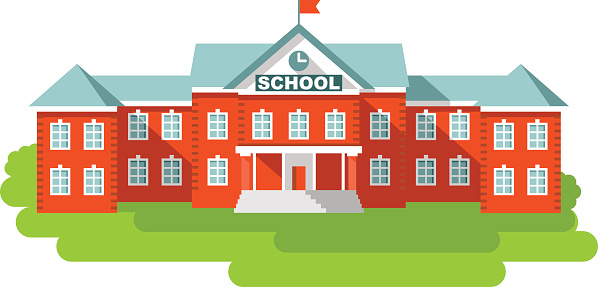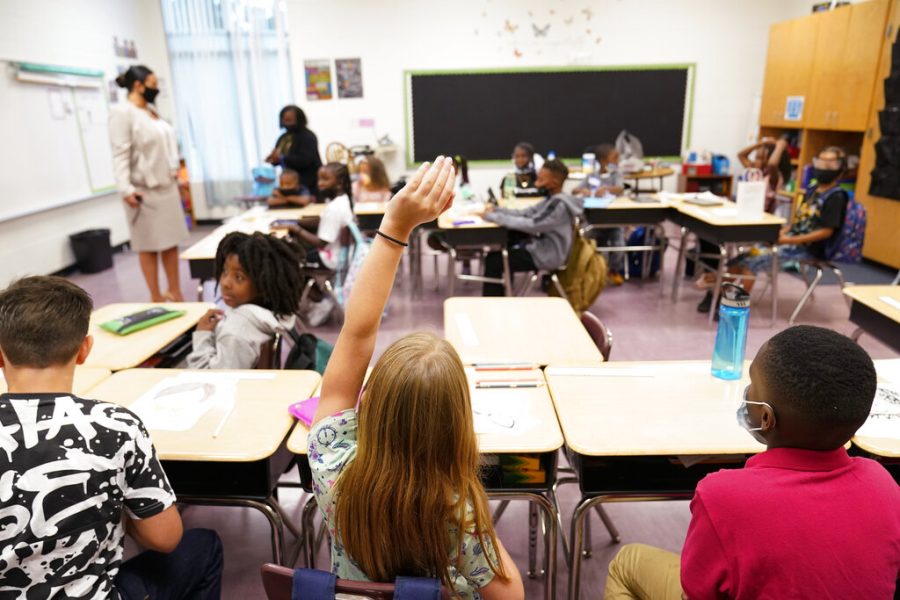Just How You Can Help Save Temecula Schools for Future Generations
Comprehending the Value of Institutions in Youngster Development and Neighborhood Development
Schools serve as critical organizations for youngster development and neighborhood growth, providing atmospheres where academic success are matched by the cultivation of social abilities and direct exposure to varied point of views. These educational settings not just promote critical thinking and efficient communication but additionally foster empathy via collaborative tasks. Institutions' engagement with neighborhood neighborhoods via service-learning initiatives reinforces the bond between families and educational organizations. This symbiotic partnership highlights the value of schools in nurturing energetic citizenship and long-lasting understanding practices. What are the particular devices by which these establishments accomplish such profound influences?
Academic Success
Academic accomplishment functions as a cornerstone of child growth, providing the foundation whereupon future understanding and success are built. Institutions play an essential function in fostering this scholastic growth, using structured settings where youngsters can obtain important expertise and cognitive skills. Standardized educational program make sure that students gain effectiveness in core topics such as mathematics, scientific research, and language arts, which are crucial for both greater education and specialist possibilities.
In enhancement to presenting basic academic skills, colleges also cultivate essential reasoning, analytic capabilities, and intellectual interest. These cognitive expertises are crucial for browsing intricate real-world situations and adjusting to the ever-evolving demands of the modern work environment. Teachers, as facilitators of knowing, use varied pedagogical techniques to satisfy varied knowing styles, thus making the most of private trainee possibility.
Additionally, scholastic success is very closely connected to self-confidence and motivation. Kids that experience scholastic achievements are most likely to develop a positive self-concept and a long-lasting enthusiasm for knowing. Colleges additionally use various sources, such as collections and modern technology, which even more boost the educational experience and prepare students for a technically advanced culture.
Social Skill Growth
Beyond scholastic success, the duty of colleges in social skill development is essential. Schools function as a key place for children to discover and exercise necessary social skills such as dispute, communication, and cooperation resolution. In the structured environment of a classroom, trainees interact with peers, teachers, and other school team, providing numerous possibilities to develop these crucial capacities.
Efficient social ability development in schools is promoted through team tasks, collaborative tasks, and extracurricular programs. These communications help students comprehend social norms, build compassion, and promote a sense of neighborhood. Group projects teach trainees how to work with each other towards a typical objective, listen to different perspectives, and browse disputes constructively.

The farming of social abilities throughout college years lays a structure for future individual and professional partnerships. Save Temecula Schools. As trainees develop, the capability to effectively interact and collaborate becomes progressively important, underscoring the institution's crucial function in alternative child development
Direct Exposure to Diversity
Exposure to diversity in schools is essential to cultivating a comprehensive way of go right here thinking and widening trainees' viewpoints. Schools act as a microcosm of the broader society, and coming across diverse cultures, languages, and socioeconomic backgrounds within this setting equips students with necessary abilities for navigating an increasingly globalized world. This exposure encourages compassion, reduces prejudices, and promotes common respect amongst peers.
Varied class additionally enhance social and cognitive development. Study suggests that students that connect with peers from diverse backgrounds show better problem-solving skills and creative thinking. They learn to appreciate various my explanation viewpoints, which improves classroom conversations and fosters an extra dynamic understanding experience. Moreover, this understanding of variety prepares students for future offices that worth multicultural competence.

Neighborhood Engagement
The benefits of varied class expand beyond the institution walls, fostering a strong sense of neighborhood interaction among pupils. By engaging with peers from various social, socioeconomic, and ethnic histories, trainees get a broader viewpoint and a recognition for variety. This exposure motivates them to go to my blog come to be energetic people who are willing to contribute positively to their communities.
Colleges that stress area involvement typically integrate service-learning tasks, which allow pupils to deal with real-world problems while applying academic skills. These projects not just improve students' understanding of their coursework but likewise instill a feeling of responsibility and empathy. Collaborations in between institutions and local organizations offer students with possibilities to participate in area occasions, better solidifying their duty as positive area participants - Save Temecula Schools.
In addition, adult and area participation in colleges strengthens the bond in between instructional organizations and the areas they offer. With these efforts, institutions play a critical duty in supporting area involvement and cultivating societal growth.
Lifelong Discovering Practices
Establishing long-lasting knowing routines is important for a child's continual development and versatility in an ever-changing world. Schools play a crucial function in instilling these practices by developing an atmosphere that promotes interest, crucial thinking, and a love for understanding. Through extracurricular activities and diverse curricula, educators urge pupils to discover different subjects, evaluate information seriously, and apply their learning to real-world scenarios.

In addition, institutions give a structured atmosphere where kids can establish self-control and time administration abilities, both of which are important for continual discovering. By highlighting the relevance of setting goals, assessing progression, and adapting techniques, academic establishments prepare pupils to browse the complexities of adult life, guaranteeing they remain lifelong learners and factors to culture.
Final Thought
In verdict, colleges are important in promoting kid growth and community development by supplying atmospheres helpful to academic accomplishment, social ability advancement, and direct exposure to variety. Inevitably, colleges cultivate lifelong understanding routines, outfitting individuals with the necessary understanding and skills to add favorably to culture.
In the structured setting of a classroom, pupils communicate with peers, educators, and various other college personnel, providing numerous chances to develop these important capabilities.
In essence, direct exposure to variety within institutions not just enriches specific pupils but likewise reinforces the social textile of the community as a whole.
The advantages of diverse classrooms expand beyond the school walls, cultivating a solid sense of area engagement amongst pupils.Colleges that emphasize neighborhood engagement often incorporate service-learning tasks, which allow students to resolve real-world problems while applying scholastic abilities. Partnerships between institutions and neighborhood organizations supply trainees with opportunities to take part in neighborhood events, additionally strengthening their duty as positive community members.